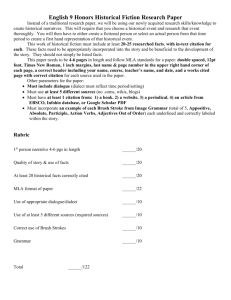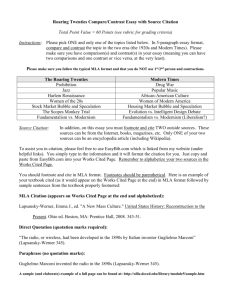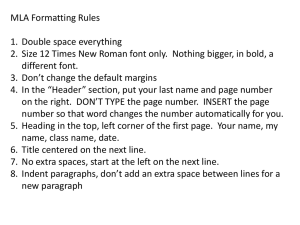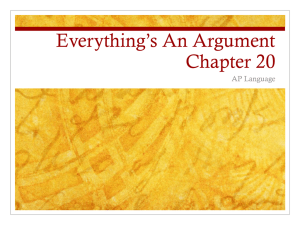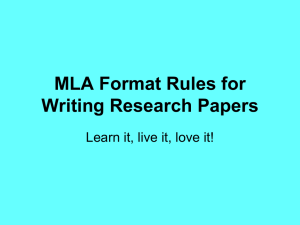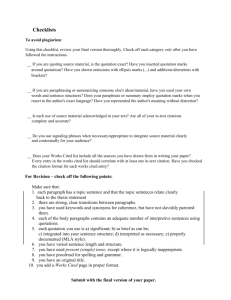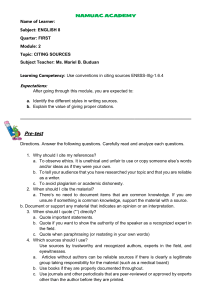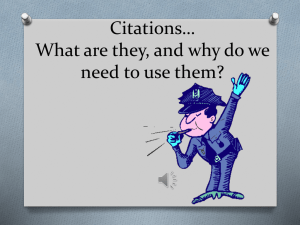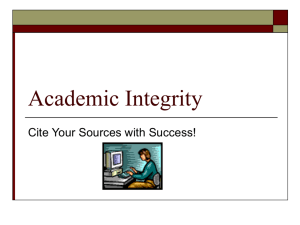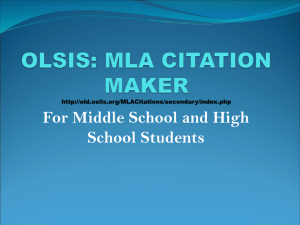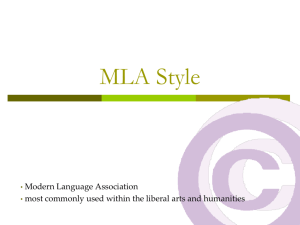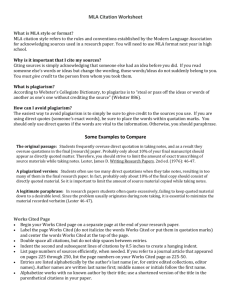MLA Format
advertisement
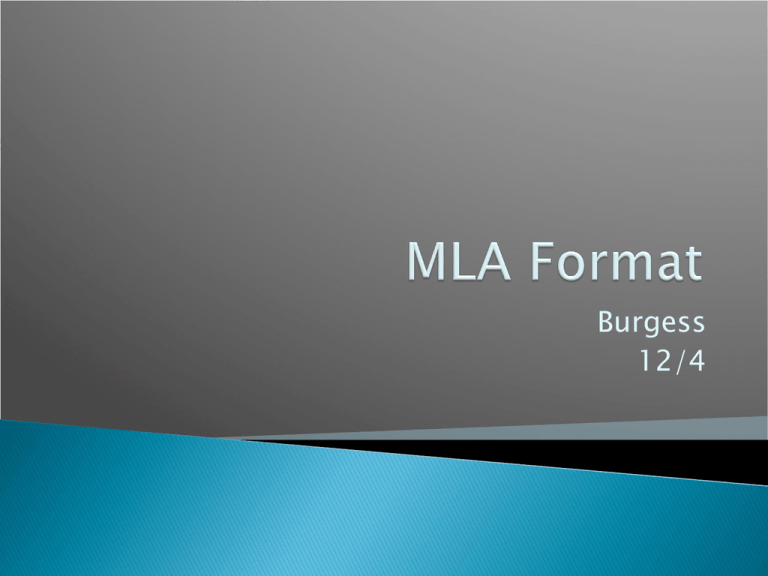
Burgess 12/4 Cite: V – to quote from an author as evidence Citation: N – quotation form of a reference Citing: V – process quoting a reference Reference: N – Mention of a source (i.e citation) Reference: pgs R31-R32 Modern Library Association USE Purpose English (Discipline) Anytime you give a textual example Research essay Cite sources 1. In the document (Ex: Steinbeck 7) - no comma - direct quote: use quotation marks – your period goes inside the quotation marks - summary: No quotations 2. End of the doc: Works-Cited List (Title) I.D.’s source Parenthesis Outside of quote I.D.’s Author last name I.D.’s page # Long quote is separated from rest of text in another paragraph Ex: (Steinbeck 7) Title: Works Cited List There are no bullet points Page is single spaced Indent after the first line Alphabetize all citations Steinbeck, John. Of Mice and Men. London: Penguin Group, 1937. 1. 2. 3. 4. What is MLA abbreviated for? List the two ways to cite sources. Yesterday you interviewed Ms. Brooks – Write the citation for a works cited page. What is wrong with this internet citation? Ouchi High School. 10 Dec. 1937 <http://www.ouchihs.org.> 1. 2. 3. 4. 5. T/F: MLA is an abbreviation for Modern Language Association What is the major purpose for using the MLA format? How is the Works Cited List organized? If you were citing a text in your textbook which citation would you use? “Trust thyself: every heart vibrates to that iron string” (Emerson, 148). a. Correct b. Wrong On a sheet of paper, create a Works Cited List from the sources below. Make any necessary corrections. Single work from an antholgy “Teaching Language to an Ape,” by Ann James Premack and David Premack, Scientific American, October 1972, pp. 9293. Newspaper “School History Books, Striving to Please All, Are Criticized as Bland,” The Wall Street Journal, Vol. 64, No. 46 (September 5, 1979), p. A8. John F. Kennedy, Profiles in Courage (New York: Harper and Brothers, 1955), p.100 John Searle, “What Is a Speech Act?” in Language and Social Context, ed. Pier Giglioli (New York: Penguin Books, 1972).
